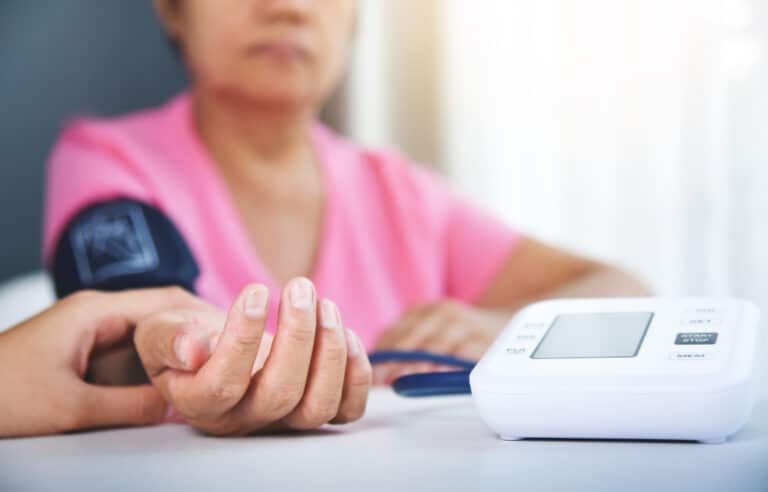Eating Disorders
Can medical cannabis help patients who are recovering from eating disorders? Read on below to find out.
What is an eating disorder?
An eating disorder is a severe, complex, and potentially fatal mental illness. They are characterized by disturbances in behaviors, thoughts, and attitudes toward food, eating, and body weight or composition. Eating disorders seriously impact a person’s life and result in medical, psychiatric, and psychosocial consequences.
How common are they?
Eating disorders are increasingly common. A lifetime estimated prevalence of 8.4 percent for women and 2.2 percent for men.
Main Types of Eating Disorders
Here are the most common types of eating or feeding disorders:
- Anorexia Athletica
- Atypical Anorexia
- Binge-eating
- Body dysmorphic disorder
- Extremely Picky eating
- Food-avoiding behaviors
- Night eating syndrome
- Type-I diabetes-related eating disorder
Anorexia
Anorexia nervosa is a mental disorder that is also classified as an eating disorder. Biological, psychological, and environmental factors can influence anorexia, including cultural and social pressures, genetics, trauma, and emotional health.
Signs and Symptoms
Anorexia nervosa is a mental disorder that is also classified as an eating disorder. Biological, psychological, and environmental factors can influence anorexia, including cultural and social pressures, genetics, trauma, and emotional health.
Short-term signs include:
- restrictive eating
- emaciation
- distorted body image
Long-term symptoms include:
- thinning bones
- short and fine hairs all over the body
- dry skin
- yellow skin
- anemia
- heart and organ damage
- low blood pressure
Anorexia can be fatal if left untreated. Early detection and treatment are essential in preventing long-term health issues. While men also experience eating disorders, women are more likely to develop anorexia nervosa. However, LGBTQ+ men are at a greater risk of experiencing eating disorders than their straight counterparts.
Diagnosis and Treatment
Treatment for anorexia often involves a combination of therapies and treatments, including:
- Cognitive behavioral therapy
- Nutrition education
- Antidepressants
- Hospitalization and Medical Care
Research shows that family support is critical and plays a significant role in the patient’s recovery. Anorexia patients are at a higher risk for suicide and self-harm, so support is vital.
Bulimia
Bulimia nervosa is a mental disorder that is also classified as an eating disorder. Biological, psychological, and environmental factors can influence anorexia, including cultural and social pressures, genetics, trauma, and emotional health. Bulimia involves uncontrolled episodes of overeating, called bingeing, often followed by purging by vomiting or misusing laxatives. Bingeing is eating significant amounts of food in a short period, usually less than two hours. With bulimia, it may feel like one can’t stop or control these episodes. In extreme cases, binge-purge cycles can occur several times weekly or daily.
Signs and Symptoms
Bulimia nervosa can be difficult for others to see as people with the condition often binge and purge alone.
Behavioral and emotional symptoms of bulimia may include:
- Frequent visits to the bathroom, especially after meals.
- Excessive exercising
- Body image issues
- Fear of weight gain
- Depression or anxiety
- Substance abuse
- Loss of control over emotions
- Guilty or ashamed of eating
- Social withdrawal
Physical symptoms of bulimia nervosa may include:
- Swollen cheeks or jawline
- Gastrointestinal issues
- Scars, scrapes, or calluses on knuckles
- Fainting
- Irregular menstrual periods
- Muscle weakness
- Bloodshot eyes
- Dehydration
- Thinning bones
- Dry skin
- Yellow skin
- Anemia
- Heart and organ damage
- Low blood pressure
- Poor dental hygiene
Diagnosis and Treatment
Treatment for bulimia often involves a combination of therapies and treatments, including:
- Cognitive behavioral therapy
- Nutrition education
- Antidepressants
- Hospitalization and Medical Care
Bulimia can be fatal if left untreated. Early detection and treatment are essential in preventing long-term health issues. While men also experience eating disorders, women are more likely to develop them. However, LGBTQ+ men are at a greater risk of experiencing eating disorders than their straight counterparts.
Research shows that family support is critical and plays a significant role in the patient’s recovery. Bulimia patients are at a higher risk for suicide and self-harm, so support is vital.
Can medical cannabis help?
While traditional treatment has helped many patients with eating disorders recover fully, the scarcity of effective medicinal treatments has spurred research into cannabinoids such as THC and CBD for bulimia treatment.
A 2014 trial that studied the use of Dronabinol in severe, enduring anorexia nervosa patients found that patients well tolerated this therapy. Four weeks of exposure induced minor weight gain without severe adverse effects. Dronabinol is a lab-created THC that is FDA-approved to treat appetite and weight in those with immunodeficiency syndrome (AIDS).
The University of Buffalo’s Research Institute on Addictions (RIA) has recently begun research on the connection between cannabinoids, depression, and chronic stress. Animal research shows that certain cannabinoids can help reduce stress, which is a significant cause of depression. It’s also important to note that over half of Washington medical marijuana users that participated in a survey reported treating depression with medical cannabis products.
There have not been any controlled trials conducted studying the effect of natural cannabis on appetite and weight, with weight as the primary endpoint. This is partly due to existing federal regulations regarding investigating the potential therapeutic benefit of the cannabis plant, but this is slowly changing, so we can expect further research to be conducted.
Last Updated: June 14, 2024
Get Your Medical Card
Connect with a licensed physician online in minutes
Table of Contents
Keep Reading
-
What Are Edibles
If you’re looking for information on what edibles are, then this is the page for you.
-
A Comprehensive Look At Hybrid Weed
Unlock the Best of Both Worlds: Dive into the World of Hybrid Weed Strains for a Blissful Blend of Relaxation and Euphoria. Get your comprehensive guide now and experience the perfect balance! Click here to elevate your cannabis journey.
-
Does Smoking Cannabis Give You High Blood Pressure?
Can cannabis help manage high blood pressure? Discover our informative article about the potential benefits of using cannabis for hypertension.



